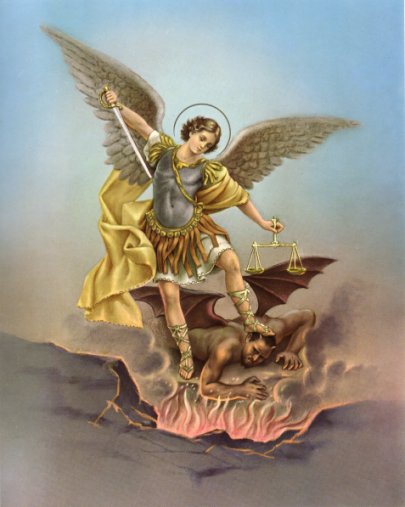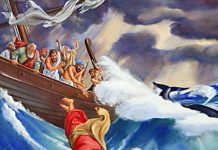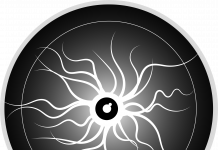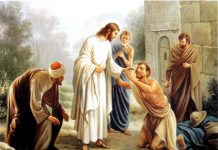The Feast of Saint Michael the Archangel
Elias Bejjani/November 08/2025
عيد القديس ميخائيل رئيس الملائكة
الياس بجاني/08 تشرين الثاني/2025
تحتفل الكنيسة اليوم بعيد القديس مخائيل رئيس الملائكة، فمن هو وما هي خلفية العيد الكنسية تاريخياً؟
“ان ميخائيل رئيس الجنود السماوية هو الذي قاتل مع ملائكته الابرار، الشيطان المتكبر وملائكته الاشرار واخرجه من السماء وقال له: “مَن مثل الله” فكان هذا تفسير اسمه “ميكائيل”: مَن كالله، كما جاء في سفر الرؤيا ( 12/ 7). وقد اتخذته الكنيسة المقدسة شفيعاً ومحامياً لها ولابنائها. وتعيّد له اليوم، تذكاراً للاعجوبة التي صنعها في مدينة كولوسي المشهورة برسالة القديس بولس. عندما جاء رجل وثني مع ابنته الخرساء منذ ولادتها فرأى جمع من المسيحيين يغتسلون بحوض الماء قرب كنيسة القديس ميخائيل فعمل مثلهم وسقى ابنته من الماء فشفيت حالاً… فآمن الرجل وبعض معارفه، فغضب الوثنيين واتوا ليهدموا الكنيسة وبدأوا بالحفر حولها فأخذ حارس الكنيسة وهو من بعلبك يدعى ارخيبوس يتضرع الى الله ويستغيث بالقديس ميخائيل. فظهر الملاك ميخائيل ليلاً للوثنيين وهم يحفرون ليحولوا الماء عليها، فحوّل الماء عنها إذ شق صخرة بعصاه فغارت المياه فيها ولم تصب الكنيسة بأذى فآمن عدد كبير من الوثنيين. وكان هذا حوالي القرن الثاني للميلاد. صلاته معنا.
عيد رؤساء الملائكة والملائكة
1. أصل العيد وتاريخه في التقليد الشرقي
في الثامن من شهر تشرين الثاني/نوفمبر، تعيِّد الكنائس التي تتبع التقليد البيزنطي (كالأرثوذكسية الشرقية والملكية الكاثوليكية) عيدًا جامعًا ومجيدًا لـ رؤساء الملائكة ميخائيل وجبرائيل وسائر الطغمات العادمة الأجساد. تعود أصول الاحتفال بهذا العيد إلى القرن الرابع الميلادي في الشرق. جاء تنظيم هذا التكريم بعد فترة من الجدل اللاهوتي، حيث اضطرت الكنيسة إلى التفريق بين العبادة المستحقة لله وحده، وبين تكريم الملائكة والقديسين والذين هم خدام الرب.
إدانة العبادة لا التكريم: يُذكر في هذا السياق مجمع اللاذقية المحلي (حوالي 343-381م) الذي أدان في قانونه الخامس والثلاثين عبادة الملائكة باعتبارها هرطقة. هذا القانون لم يلغِ التكريم والشفاعة، بل منع تقديم العبادة لهم كخالقين أو وسطاء أساسيين.
استبدال الأعياد الوثنية
عمد الآباء القدماء، مثل البابا سلفستروس في رومية والبطريرك ألكسندروس في الإسكندرية (+ 328م)، إلى استبدال الأعياد الوثنية بأعياد مسيحية لتكريس الزمن. التفسير الرمزي لـ 8 تشرين الثاني: يُفسَّر اختيار شهر تشرين الثاني (نوفمبر) رمزياً في التقليد الشرقي، حيث يمثل الشهر التاسع إذا ما بدأ العد من شهر آذار (مارس) وفقًا لبعض التقاويم القديمة. هذا العدد (9) يشير إلى المصاف الملائكية التسعة (الطغمات) التي يُحتفل بها في هذا العيد الجامع.
2. من هو مار مخائيل (القديس ميخائيل)؟
ميخائيل هو أحد رؤساء الملائكة السبعة (في التقليد المسيحي الشرقي) أو الثلاثة الأبرز (في التقليد الغربي). اسمه يعني باللغة العبرية “من مثل الله؟” (مي-كا-إيل: Mi−kha−′el). وظيفته الأساسية: يُصور في الكتاب المقدس والتقليد المسيحي كـ قائد جند السماء والمدافع عن شعب الله (اليهود في العهد القديم والمسيحيين في العهد الجديد) ضد قوى الشر والشيطان.
وظائف أخرى: يُنسب إليه أربع وظائف رئيسية:
محاربة الشيطان.
إنقاذ نفوس المؤمنين من قوة العدو، خاصة عند ساعة الموت.
شفيع الكنيسة والمدافع عن شعب الله.
الذي ينادي أرواح البشر للدينونة (القيامة).
تاريخ وجوده
يعود إلى بدء الخلق الإلهي للملائكة، أي أنه كائن روحي سابق للتاريخ البشري.
3. قصته الإنجيلية وأين هو مذكور في الكتاب المقدس؟
القديس ميخائيل مذكور بالاسم أربع مرات في الكتاب المقدس:
مرجع الكتاب المقدس/السياق الإنجيلي والدور
سفر دانيال 10: /13/ذُكر كأحد “رؤساء الملائكة الأولين” الذي ساعد الملاك المرسل إلى دانيال.
سفر دانيال 12: 1/ذُكر كرئيس الملائكة الذي “يقوم” للدفاع عن شعب إسرائيل في أزمنة الشدائد الكبرى.
رسالة يهوذا 1: 9/ذُكر وهو “يخاصم إبليس محاجًّا عن جسد موسى”، حيث لم يقدم حكماً شخصياً بل استند إلى سلطة الرب (“لينتهرك الرب!”).
سفر رؤيا يوحنا 12: 7/ذُكر كقائد المعركة السماوية والمنتصر على التنين: “وحدثت حرب في السماء: ميخائيل وملائكته حاربوا التنين…”.
The Feast of Saint Michael the Archangel
Elias Bejjani/November 08/2025
Today, the Church celebrates the Feast of Saint Michael the Archangel. Who is he, and what is the historical ecclesiastical background of this feast?
Michael, the Prince of the Heavenly Host, is the one who fought with his righteous angels against the arrogant Devil and his wicked angels, casting him out of heaven with the cry: “Who is like God?” This is the meaning of his name, “Michael” (Mi−kha−′el), as stated in the Book of Revelation (12:7). The Holy Church has adopted him as its patron and advocate.
The Miracle in Colossae
The Church commemorates this day as the anniversary of the miracle he performed in the city of Colossae (well-known from the Epistle of Saint Paul). A pagan man came with his daughter, who had been mute since birth. He saw a crowd of Christians bathing in the water basin near the Church of Saint Michael. He did the same and gave his daughter some of the water, and she was immediately cured. The man and some of his acquaintances believed. The angry pagans attempted to destroy the church by digging around it to divert a river’s water towards it. The church guard, named Archippus (from Baalbek), pleaded with God and invoked the help of Saint Michael. The Archangel Michael appeared to the pagans at night while they were digging, and he diverted the water away from the church by cleaving a rock with his staff, causing the water to disappear into the fissure, thus saving the church. Many pagans believed as a result. This event is dated to around the Second Century A.D. His prayer is with us. Feast of the Archangels and Angels (November 8th)
1. Origin and History in the Eastern Tradition
The Churches that follow the Byzantine Tradition (such as the Eastern Orthodox and Melkite Greek Catholics) celebrate on November 8th a glorious, collective feast for the Archangels Michael and Gabriel and all the Bodiless Hosts (Angelic Orders).
The origins of this celebration trace back to the Fourth Century A.D. in the East. The organization of this veneration followed a period of theological debate, where the Church had to distinguish between worship due to God alone and veneration/intercession of the angels and saints who are servants of the Lord.
Condemnation of Worship, Not Veneration: The local Council of Laodicea (c. 343-381 A.D.) is mentioned in this context, as its 35th Canon condemned the worship of angels as a heresy. This canon did not abolish their veneration or intercession but prevented them from being worshipped as creators or essential mediators.
Substitution of Pagan Feasts: Ancient Church Fathers, such as Pope Silvester of Rome and Patriarch Alexander of Alexandria (+ 328 A.D.), replaced pagan festivals with Christian feasts to consecrate time.
Symbolic Interpretation of November 8th: The choice of November is symbolically interpreted in the Eastern tradition as the ninth month if the year is counted from March (as per some ancient calendars). The number nine (9) corresponds to the Nine Choirs (Orders) of Angels that are collectively celebrated on this feast.
2. Who is Saint Michael?
Michael is one of the Seven Archangels (in the Eastern Christian tradition) or one of the three most prominent (in the Western tradition). His name in Hebrew means “Who is like God?” (Mi−kha−′el).
Primary Function: He is depicted in the Holy Scriptures and Christian tradition as the Commander of the Heavenly Host and the Defender of God’s people against the powers of evil and the Devil.
Other Functions: He is traditionally credited with four main roles:
Fighting Satan.
Rescuing the souls of the faithful from the enemy’s power, especially at the hour of death.
Serving as the Patron of the Church and Defender of God’s people.
Calling the souls of humanity to Judgment (the Resurrection).
Origin: His existence dates back to the divine creation of the angels, making him a spiritual being that predates human history.
3. Michael’s Biblical Story and Mentions
Saint Michael is explicitly mentioned by name four times in the Holy Bible:
Biblical Reference/Context and Role
Daniel 10:13/Mentioned as “one of the chief princes” who assisted the messenger angel sent to Daniel.
Daniel 12:1/Mentioned as the great prince who “stands watch” over the people of Israel during times of great distress.
Jude 1:9 Mentioned when “contending with the devil and disputing about the body of Moses,” deferring judgment to the Lord (“The Lord rebuke you!”).
Revelation 12:7 Mentioned as the leader of the heavenly war: “And war broke out in heaven: Michael and his angels fought with the dragon…”






















